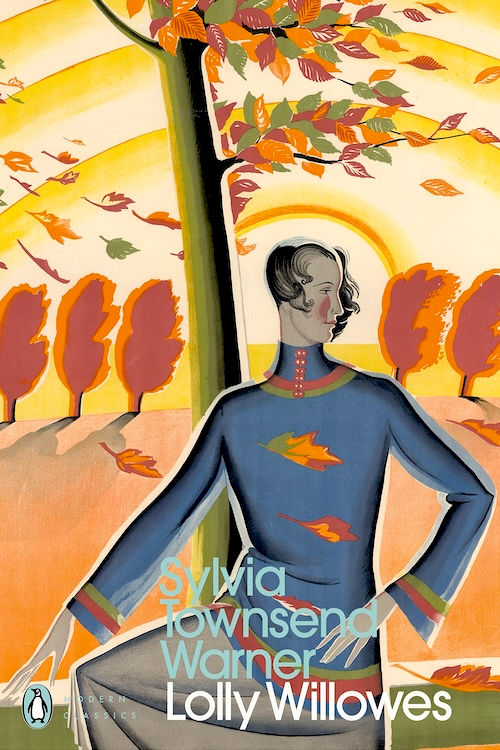
"Witty, eerie, tender...
A great shout of life and individuality"
Lolly Willowes, so gentle and accomodating, has depths no one suspects. In this debut novel written by Sylvia Townsend Warner in 1926, I found her character admirable and unique.
Laura Willowes has been called Lolly for so long, her real name sounds foreign to her. Nursemaid to her father, she is unwed at 28 when he passes away, so naturally, she would go into the care of her brother Henry and his wife. "Of course, you will come to us". Not the guest room, but the smaller spare room would do nicely. Her sister-in-law Caroline knows best, and the two girls would love to be babysat by Lolly. London would be a pleasant change, and she may meet someone to marry. Even in 1902, some forward spirits wondered why Miss Willowes, who was quite well off, did not make a home for herself. It seems life is settled for her now.
An avid reader, she had completed her father's library, so new leather bound books were a thrill to read - "naturally it had not occurred to them a young lady of their acquaintance would need restrictions as to what she read, and Miss Willowes had not seen any reason for making them better informed". Lacking coquetry she did not attract the marrying kind, falling into a pleasant life of modest luxury in Apsley Terrace. Life did not even change after the war, the same pattern continued as if nothing happened. At 47, with the children of the house grown, a disquiet within her grew, and the veneer cracked as she displayed outrageous behavior - such as buying all the chrysanthemums she liked, when there were perfectly good dahlias in the home. Finding they grew in Chiltern, she became enamoured with living there, proclaiming to the family she was going to move.
Lolly blends in with the villagers who leave their house at all hours, finding freedom wandering the countryside blooming with cowslip whenever she pleased.
A visitor arrives; her nephew Titus. And when he, too, decides to move to the village, something must be done. The answer comes to her as a cat playfully scratches her hand. The cat must be her familiar, an emissary of Satan, and she must be a witch. She enters into a pact with the Devil, and attending an all night Sabbath will surely drive him away.
Lolly Willowes is an early feminist classic, predating the better known A Room Of One's Own by Virginia Woolf. Lolly tells the Devil himself that "women are like sticks of dynamite" waiting to explode; all women are witches even if they never do anything with witchcraft - the act of being an independant woman is seen as evil itself. Warner wrote this as a sword cutting through societal norms through a satirical comedy of manners. Lolly's disinterest in men can be seen as ambiguous sexuality, as author Sylvia herself lived as a lesbian. In 1930, she met her life partner, the poet Valentine Ackland, and after her death in 1978, their ashes were interred together in Dorset.
I found Lolly Willowes a portrait of an independant mind and waitied anxiously for her to break free of her surroundings, enjoying the breath of fresh air that filled the room when she arrived in the hills of Chiltern. Her choice to become a witch was a strange blend of reality with fantasy, but I see it now as the classic novel presented, not only for readers of feminist fiction, but of english literature overall.
Lolly Willowes was the very first US Book-Of-The-Month Club selection.
1926 / Tradeback / 170 pages


Comments